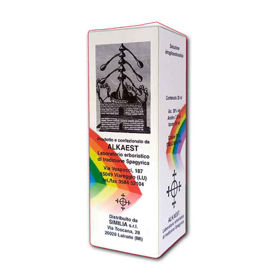Customer question:
What can elevated leukocytes in the blood indicate? Anonymous customer's question
Pharmacist's answer:
Elevated levels of leukocytes in the blood, known as leukocytosis, can have various causes. If you have elevated white blood cell counts, you must consult your doctor to determine the cause of this condition. The doctor will perform appropriate tests, including blood tests and other diagnostic procedures, to make a correct diagnosis and prescribe appropriate treatment, if necessary.
Among the most common causes of elevated values are:
- Infectious diseases: bacterial, viral, or parasitic infections, which can often cause an increase in the number of leukocytes as a response to the immune system.
- Inflammation: Inflammatory diseases such as rheumatoid arthritis, inflammatory bowel disease, or pneumonia can cause an increase in the concentration of leukocytes.
- Allergic reactions: Allergic conditions, such as severe allergic reactions or asthma, can also cause an increase in the number of white blood cells.
- Physical exertion or stress: intense physical exertion or possibly severe emotional stress can cause a temporary increase in leukocyte concentration.
- Certain medications: the use of certain medications, especially corticosteroids, can cause an increase in leukocytes.
- Bone marrow diseases: diseases that affect the state of bone marrow cells, where blood cells are formed, can cause changes in the number of leukocytes. This includes leukemia and other forms of bone marrow cancer.
Can elevated leukocyte concentrations in the blood cause blood cancer?
Increased leukocytes per unit volume is not a direct cause of blood cancer. Leukocytosis, or an increased white blood cell count, can be a symptom or sign of various conditions, including infections, inflammation, allergies, exercise, and other illnesses. If leukocytes are elevated, the key is to identify the underlying cause.
Blood cancer, such as leukemia, refers to a group of cancers that affect blood-forming cells, especially white blood cells. While an elevated white blood cell count can be one of the symptoms of leukemia, it does not in itself mean that you have leukemia or another form of blood cancer. Additional diagnostic procedures, such as blood tests, bone marrow biopsies, and imaging tests, are necessary to diagnose blood cancer.
Talk to your doctor if you have concerns about elevated white blood cell levels or other health problems. The doctor will perform appropriate tests to determine the cause of the elevated white blood cell count and suggest further steps for treatment or control.
Are elevated leukocytes in the blood dangerous for health?
Elevated levels of leukocytes in themselves are not necessarily dangerous. Leukocytosis (elevated white blood cell count) can be the body's natural response to various challenges, such as infections, inflammation, allergic reactions, physical exertion, and other factors. In many cases, elevated concentrations of leukocytes in the blood are the immune system's response to a specific pathological condition in the body.
However, it is crucial to determine the cause of elevated leukocyte concentrations, as this can be a symptom or result of various health problems. Some causes of elevated leukocyte concentrations are benign. In contrast, others may be related to severe diseases such as infectious diseases, inflammatory diseases, allergies, or even certain types of cancer, including blood cancer (leukemia).
If you have elevated levels of leukocytes, you must see a doctor who will perform the appropriate tests and make a diagnosis. The doctor will thus be able to assess the seriousness of the situation, determine the underlying cause, and prescribe appropriate treatment or monitoring if necessary.
In some cases, elevated leukocyte concentrations can be caused by an acute infection or other short-term stressful event, which may go away without specific treatment. In other cases, it is essential to control the underlying disease when elevated leukocyte concentrations are associated with an underlying chronic disease.
Interesting reading: Elevated leukocytes in blood cancer
Interesting reading: Bone cancer symptoms













